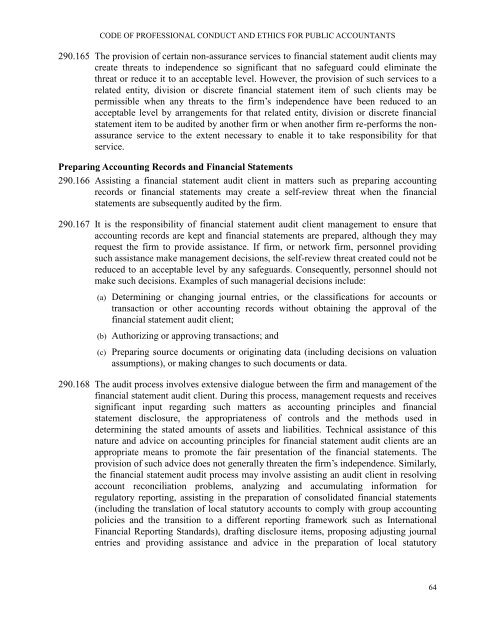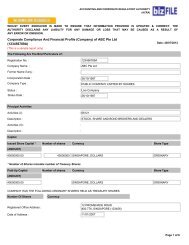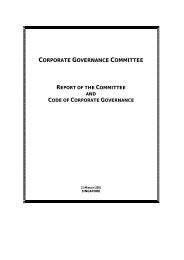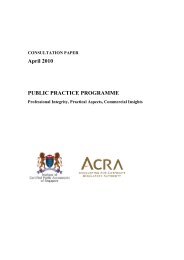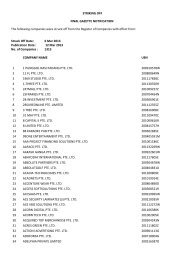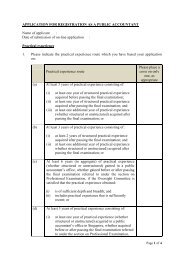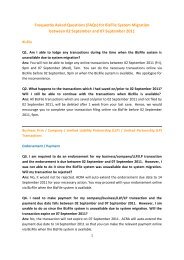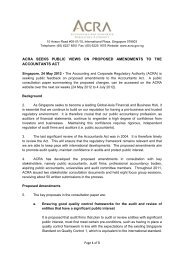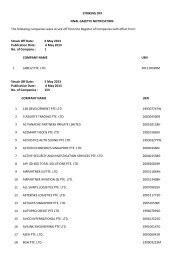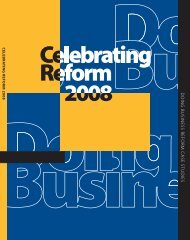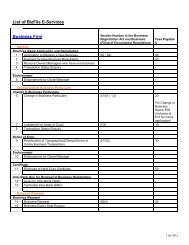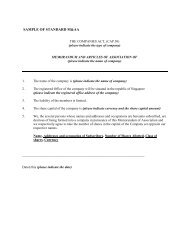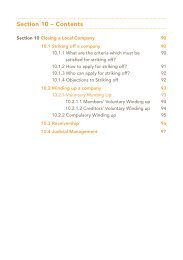Exposure Draft - ACRA
Exposure Draft - ACRA
Exposure Draft - ACRA
You also want an ePaper? Increase the reach of your titles
YUMPU automatically turns print PDFs into web optimized ePapers that Google loves.
CODE OF PROFESSIONAL CONDUCT AND ETHICS FOR PUBLIC ACCOUNTANTS<br />
290.165 The provision of certain non-assurance services to financial statement audit clients may<br />
create threats to independence so significant that no safeguard could eliminate the<br />
threat or reduce it to an acceptable level. However, the provision of such services to a<br />
related entity, division or discrete financial statement item of such clients may be<br />
permissible when any threats to the firm‘s independence have been reduced to an<br />
acceptable level by arrangements for that related entity, division or discrete financial<br />
statement item to be audited by another firm or when another firm re-performs the nonassurance<br />
service to the extent necessary to enable it to take responsibility for that<br />
service.<br />
Preparing Accounting Records and Financial Statements<br />
290.166 Assisting a financial statement audit client in matters such as preparing accounting<br />
records or financial statements may create a self-review threat when the financial<br />
statements are subsequently audited by the firm.<br />
290.167 It is the responsibility of financial statement audit client management to ensure that<br />
accounting records are kept and financial statements are prepared, although they may<br />
request the firm to provide assistance. If firm, or network firm, personnel providing<br />
such assistance make management decisions, the self-review threat created could not be<br />
reduced to an acceptable level by any safeguards. Consequently, personnel should not<br />
make such decisions. Examples of such managerial decisions include:<br />
(a) Determining or changing journal entries, or the classifications for accounts or<br />
transaction or other accounting records without obtaining the approval of the<br />
financial statement audit client;<br />
(b) Authorizing or approving transactions; and<br />
(c) Preparing source documents or originating data (including decisions on valuation<br />
assumptions), or making changes to such documents or data.<br />
290.168 The audit process involves extensive dialogue between the firm and management of the<br />
financial statement audit client. During this process, management requests and receives<br />
significant input regarding such matters as accounting principles and financial<br />
statement disclosure, the appropriateness of controls and the methods used in<br />
determining the stated amounts of assets and liabilities. Technical assistance of this<br />
nature and advice on accounting principles for financial statement audit clients are an<br />
appropriate means to promote the fair presentation of the financial statements. The<br />
provision of such advice does not generally threaten the firm‘s independence. Similarly,<br />
the financial statement audit process may involve assisting an audit client in resolving<br />
account reconciliation problems, analyzing and accumulating information for<br />
regulatory reporting, assisting in the preparation of consolidated financial statements<br />
(including the translation of local statutory accounts to comply with group accounting<br />
policies and the transition to a different reporting framework such as International<br />
Financial Reporting Standards), drafting disclosure items, proposing adjusting journal<br />
entries and providing assistance and advice in the preparation of local statutory<br />
64


